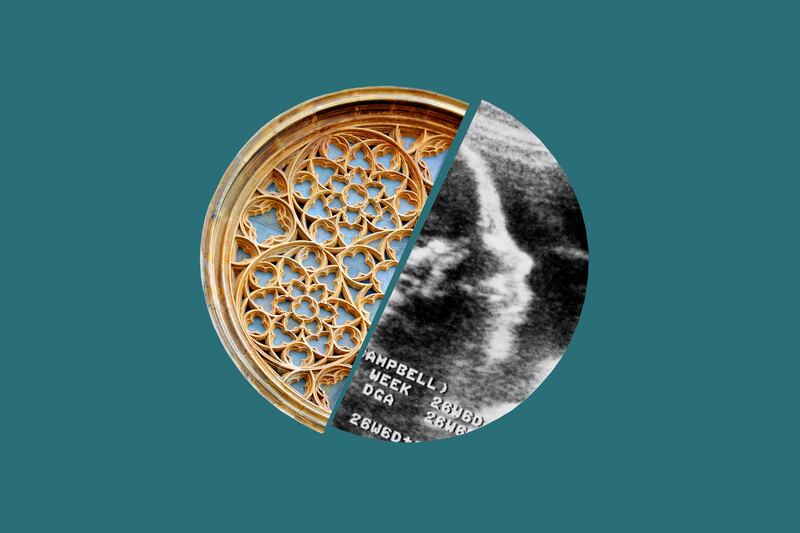This article was first published in the State of Faith newsletter. Sign up to receive the newsletter in your inbox each Monday night.
Sen. Lindsey Graham escalated the national fight over abortion rights last week, three months after the Supreme Court overturned Roe v. Wade. The Republican senator from South Carolina introduced a bill “that would prohibit elective abortions after 15 weeks of pregnancy, with few exceptions,” as the Deseret News reported.
Graham’s bill further complicated already tense debates over abortion rights, including within his own party. “From the halls of Congress to the campaign trail, Republicans attacked the bill as a distraction that divides the GOP and reminds voters that most of them see the party as too extreme on abortion,” NBC News reported.
The new bill refocused my attention on the faith-related fallout from the Supreme Court’s ruling. For this week’s newsletter, I want to highlight three recent developments at the intersection of religious freedom and abortion rights:
- Faith groups are divided over Graham’s bill.
Just as religious leaders clashed over the value of June’s Supreme Court ruling, they’re divided over Graham’s abortion bill.
Some more liberal groups have described the proposed legislation as an assault on religious freedom.
“Religious freedom demands the right to an abortion so people can make their own reproductive decisions according to their own beliefs and principles. Abortion bans like the one Sen. Graham is proposing undermine religious freedom by attempting to impose one religious viewpoint on all of us,” said Rachel Laser, president and CEO of Americans United for Separation of Church and State, in a statement.
Other organizations celebrated Graham’s move, and many prominent abortion rights opponents stood with Graham at his press conference announcing the bill.
- A new lawsuit challenges abortion restrictions in Indiana.
Indiana is the site of the latest faith-based challenge to abortion restrictions. A group of faith leaders there filed a lawsuit earlier this month against the state’s new abortion ban, arguing that it interferes with religious practice.
The lawsuit “contends that the new abortion ban would violate Jewish teaching. ... It also cites theological teachings allowing abortion in at least some circumstances by Islamic, Episcopal, Unitarian Universalist and Pagan faiths,” Religion News Service reported.
- Will religious freedom claims succeed?
The fate of the Indiana lawsuit and others like it is still uncertain, although some religious freedom scholars are skeptical that they will succeed. In a religious freedom case, faith leaders have to do more than prove that a secular law prohibits something that religious teachings permit, said Asma Uddin, an attorney, professor and author, during a webinar last week hosted by the Institute for Social Policy and Understanding.
“You can’t just say my religion permits something. You have to say my religion requires me to get an abortion,” she said.
Islam and other religions generally only require an abortion in cases where there’s a threat to the mother’s life, Uddin noted, adding that even strict abortion bans typically offer exceptions for circumstances like that.
“There might not be conflict there to begin with,” she said.
Fresh off the press
A Supreme Court setback prompted drastic action at this religious school
Mitt Romney, Mike Lee and the Senate’s battle over same-sex marriage
The surprising way Archbishop Justin Welby comforted the queen’s mourners
Yeshiva University must recognize LGBTQ rights club after Supreme Court ruling
Why students and staff members just sued this Christian school
What will American religion look like in 50 years?
Name of the week: Balbir Singh Sodhi
Balbir Singh Sodhi was one of the casualties of the 9/11 terrorist attacks, although he was not in a building hit by one of the planes. He was a gas station owner in Mesa, Arizona, who was shot and killed by a man who thought he was Muslim. Sodhi, who was actually Sikh, was the first person to lose his life as the result of a 9/11-related hate crime.
Balbir Singh Sodhi was one of many people of faith acknowledged at the White House last week as part of a discussion on how to keep communities safe from hate. President Joe Biden and other officials present said “federal resources will be allocated ... to train people at houses of worship, in workplaces and local law enforcement to identify, report and combat violence linked to hate,” Religion News Service reported.
What I’m reading ...
As it becomes more common for red state leaders to bus or fly migrants to other cities soon after their arrival in the United States, faith groups are getting used to springing into action on short notice, according to America magazine.
The World Cup will be held in the Muslim-majority country of Qatar later this year. Due to Islamic prohibitions on alcohol use, it was initially unclear whether beer would be available at the World Cup venues. But earlier this month, FIFA announced that a deal had been struck. “Fans will be allowed to buy Budweiser beer with alcohol within the eight stadium compounds — though not at concourse concession stands — before and after games, and during evenings only at the official ‘Fan Festival,’” The Associated Press reported.
I really enjoyed Christianity Today’s look at a new marriage book that is “bringing new attention to women’s pleasure.” The book’s author, Sheila Gregoire, surveyed more than 20,000 women during her research, which explains Christianity Today’s eyebrow raising article title: “What happens when you ask thousands of evangelical women about sex.”
Odds and ends
The rise of automobiles changed religious life in the U.S. more than you think, according to historical research on Catholic priests in Milwaukee.
Here’s an oldie-but-a-goodie: Washington Post columnist Michael Gerson’s essay on sending a child off to college.


